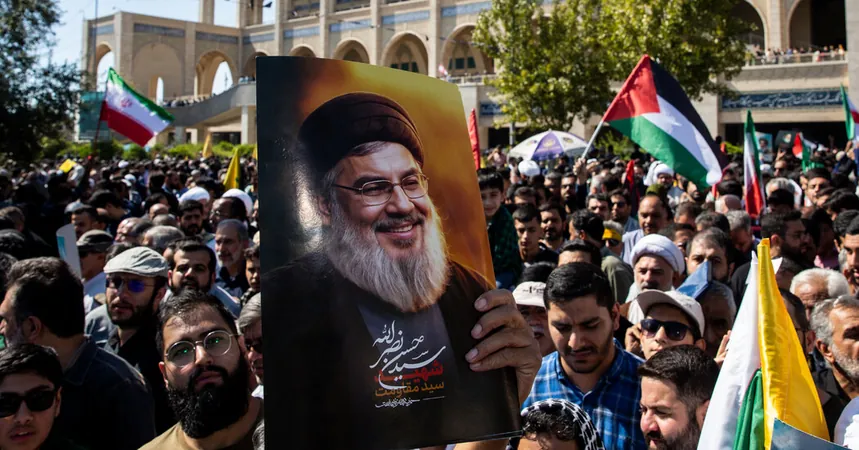
Escalating Conflict: Israeli Airstrikes Target Hezbollah Leadership as Iran's Threats Intensify
2024-10-04
Tensions in the Middle East reached a new peak as Israeli warplanes conducted a series of airstrikes targeting Hezbollah leadership in Lebanon, following the assassination of the group's former leader, Hassan Nasrallah. Among the latest targets was Hashem Safieddine, a prominent figure who is considered the presumed successor to Nasrallah. The attack, located just south of Beirut, triggered massive explosions that devastated a densely populated area known as Dahiya, leaving destruction in its wake. It remains unclear whether Safieddine survived the strike.
Iran's Supreme Leader, Ayatollah Ali Khamenei, responded to Israel's aggressive maneuvers with a passionate sermon in Tehran, where he not only expressed solidarity with Hezbollah and the Palestinian people but also threatened further retaliation against Israel. Khamenei defended Iran's recent missile attack, which saw approximately 200 projectiles launched towards Israeli targets, labeling the offensive as legal and justified, further escalating the hostilities between the two nations.
As this occurs, Hezbollah has not remained idle. Alarm sirens echoed across northern Israel as reports indicated the firing of around 100 rockets from Hezbollah towards Israel, though initial assessments revealed no immediate casualties or major damage on the Israeli side.
This renewed conflict has prompted Italy to issue expanded evacuation warnings to Lebanese residents in border areas, with reports suggesting that upwards of 235,000 people have fled into Syria, heightened by fears of further Israeli bombardments. The United Nations migration agency has flagged this exodus amid worsening violence.
The situation is compounded by ongoing military operations in the Gaza Strip, where Israeli airstrikes have resulted in significant civilian casualties. Health organizations report that at least 99 individuals were killed over a recent two-day period alone, while airstrikes in parts of the West Bank, like Tulkarm, have left devastation in their wake, with a recent attack claiming at least 18 lives.
The catalyst for this violence stems partly from decades-long tensions and geopolitical rivalries, with Iranian assistance to Hezbollah deeply intertwining the two actors in a complex web of regional conflicts. In a notable turn, Israeli Prime Minister Benjamin Netanyahu claimed that Iran's recent military actions are poised for severe repercussions, suggesting that the current hostilities could mark the beginning of a larger conflict.
Moreover, the implications of these violent exchanges have reverberated globally, affecting oil markets, with President Biden's ambiguous comments regarding support for Israeli strikes against Iran's oil facilities causing prices to soar. Analysts noted that Brent crude oil has risen significantly, indicating growing anxieties over the potential for an all-out war that could disrupt oil supplies in an already tumultuous market.
As naval and aerial confrontations heighten, both Israel and Iran seem to be on a collision course, setting the stage for an escalating conflict that could destabilize the region further.


 Brasil (PT)
Brasil (PT)
 Canada (EN)
Canada (EN)
 Chile (ES)
Chile (ES)
 España (ES)
España (ES)
 France (FR)
France (FR)
 Hong Kong (EN)
Hong Kong (EN)
 Italia (IT)
Italia (IT)
 日本 (JA)
日本 (JA)
 Magyarország (HU)
Magyarország (HU)
 Norge (NO)
Norge (NO)
 Polska (PL)
Polska (PL)
 Schweiz (DE)
Schweiz (DE)
 Singapore (EN)
Singapore (EN)
 Sverige (SV)
Sverige (SV)
 Suomi (FI)
Suomi (FI)
 Türkiye (TR)
Türkiye (TR)